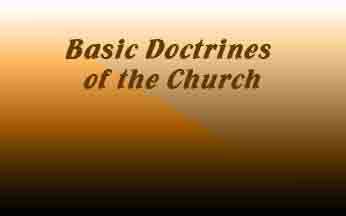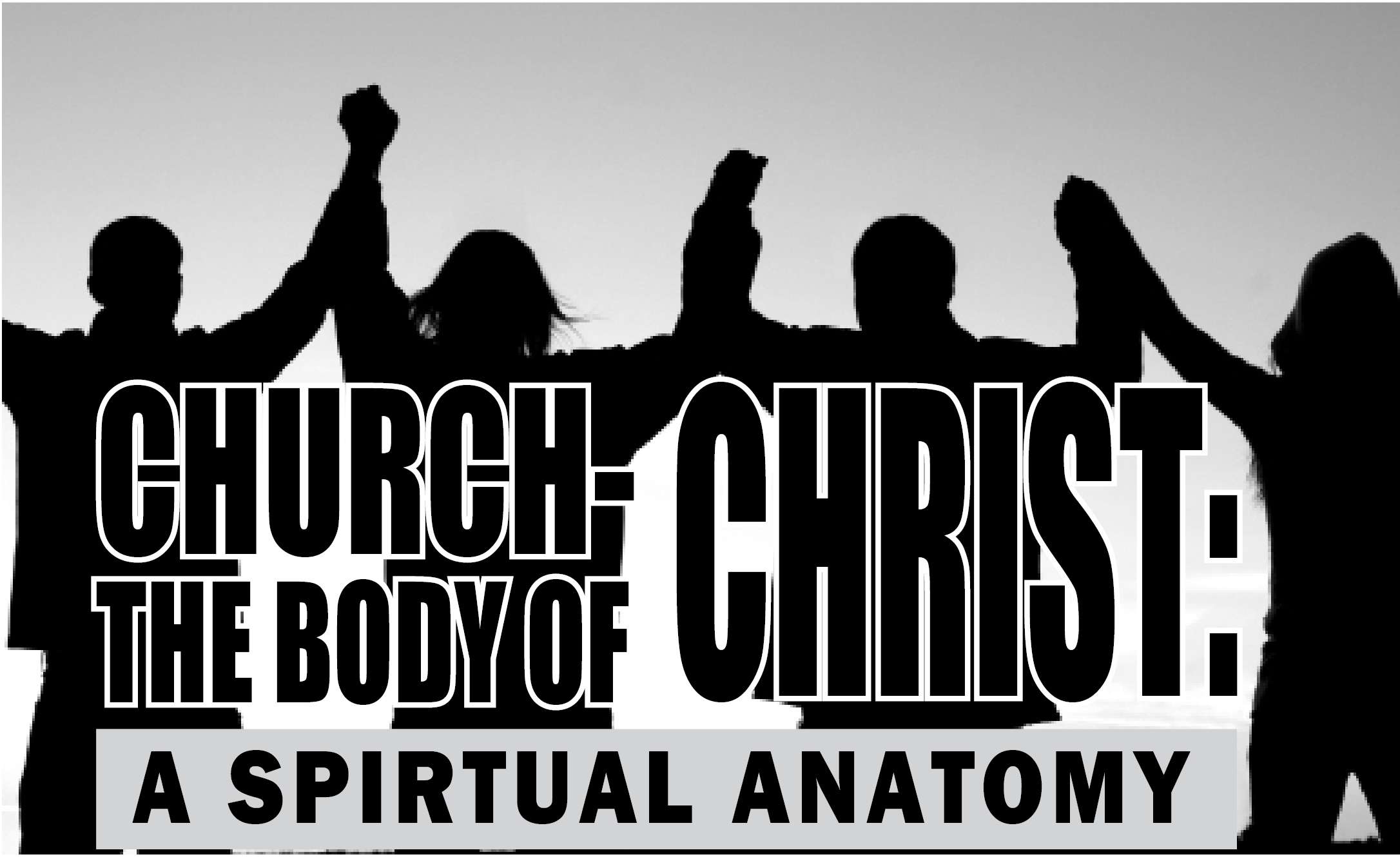

Basic Doctrines of the Chruch
Dr. T. P. Varughese
“Introductory studies do not have to be shallow or simplistic,” says Wayne Grudem (Wayne Grudem, Systematic Theology, 15). At the same time it should be clear for the readers. Doctrines of the Church should be based on the teachings of the Scripture. It is not human wisdom or speech, but rather the words of the Scripture that give authority to the doctrines. Rightly dividing the Word is the responsibility of any student of the Scripture. A theologian or a theological student or a believer should not be a person with doctrinal uncertainty. Neither should theological study be dry and boring; it must be pleasant and meaningful. “Theology is to be lived, prayed and to be sung,” says Grudem (Grudem, 16).
Christian theology is the sum total of our study of the Scripture or the Bible. Though there is only one scriptural foundation for Christian Theology, several doctrines are derived from it. However, in spite of the diversity of doctrines, there is a commonly agreed division for the major doctrines of the Bible. They are Scripture, God, Jesus Christ, Holy Spirit, humanity, sin, salvation, angels, church and last things. They are known today as Bibliology, Proper Theology, Christology, Pneumatology, Anthropology, Hamartiology, Soteriology, Angelology, Ecclesiology and Eschatology respectively. Thus emerged the 10 branches of Systematic Theology.
When we talk about ‘basic doctrines of the Church’, the term ‘doctrines’ deserves explanation. What is a doctrine? “A doctrine is what the whole Bible teaches about a particular subject” (Grudem, 25). Doctrines can be both broad and narrow. This can be true of every topic in the Bible. One topic of the doctrine can be more relevant to a particular history of time, and another doctrine may lose its importance in another historical period. In other words, doctrines are more relevant contextually. For example, teachings on Holy Spirit and spiritual gifts get more attention today whereas Christology and Trinity got primary attention in 2nd and 3rd centuries. In producing theology, philosophy and history played a significant role in the Period of Renaissance, but tradition played a greater role during the dark ages. The Word of God played a significant role during Reformation. Finally, it has come to a state today where ‘nothing’ is important for post modernists since no absolutes are recognised by them.
The term ‘church’ used in this article is not in the sense of any particular denomination, but rather as the universal church or the Christian church as a whole.
The theme of this issue of Revive is ‘fundamental doctrines of the church’. This article is an introduction to all these fundamental doctrines based on Acts 2:37-42. The order that is given in the Scripture is as follows: 1. Salvation/repentance. 2. Baptism in water. 3. Baptism in the Spirit. 4. Separation from the world/holy life. 5. Teaching of the apostles. 6. Fellowship. 7. Breaking of bread. 8. Prayer. An explanation of each of these will be given in this issue by various writers. A bird’s eye view of all these are given below.
a. Doctrine of Salvation
Paul, the greatest theologian apart from Jesus Christ, says, “all have sinned and fallen short of the glory of God” (Romans 3:23). The term ‘salvation’ indicates that there is a danger in which the world is a part of. Sin caused this danger to humanity. In Romans 5:12 Paul speaks, “through one man sin entered into the world and through sin, the death.” This depraved condition caused the necessity of salvation. Salvation could be achieved only through a person who is sinless and who is able to save the helpless sinner. A sinner is unable to help him/herself because the relation with a Holy God is cut off due to sin (Eph 2:1; Col 1:13). Humanity cannot establish a relation with God without Lord Jesus the only Saviour (Acts 4:12; John 3:16). In order to establish this relationship, human beings are to repent and turn back to God from sin. This is what soteriology teaches.
b. Water Baptism
There are two ceremonies that Jesus commanded His church to perform. They are water baptism and the Lord’s Supper. Roman Catholics call these ceremonies as “sacraments” because they teach and believe that they convey grace to people in themselves. Some Protestants (Pentecostals and Baptists) prefer the word “ordinances” instead of sacraments, since baptism and the Lord’s Supper were ordained by Christ and supported by Paul. The major factors of these ordinances are not based on how they are termed but on when and to whom they are administered. Both of these ordinances are to be administered “only to those who profess their faith in the Lord Jesus Christ as the Saviour.”
Mode and meaning of baptism is also important. In the New Testament, baptism was performed by immersion. Baptism was not given to someone to make them a believer in the Lord Jesus Christ, but only a believer was baptised. S/he was immersed or dipped in water and then brought back up again. This process attains its relevance from the Greek word ‘baptidzo’, which means ‘to plunge’, ‘dip’ or ‘immerse’ something in water (Mark 1:5). John baptised people in the river Jordan, where the Greek ‘en’ meaning ‘in’ is used and not beside or near the river (Grudem, 67).
c. Baptism in the Holy Spirit
The doctrine of the Holy Spirit is gaining more importance since the start of the 20th Century to the extent that some have called 20th century as the century of the Holy Spirit. This does not mean that the doctrine of the Holy Spirit was any less important during the previous centuries. It can be stated that this doctrine is getting its proper place since 20th century. God has existed always as more than one person in His very being. All of God’s attributes are true of all three persons, for each is fully God and all exist as one God. This is one of the most important doctrines of the Christian faith.
Who is Holy Spirit? It was taught in theology that He is the third person of the Trinity. But this is not true. There is neither first, second or third person in Godhead. Holy Spirit is equally God without any gradation or procession. Holy Spirit is distinct from God the Father Himself (Isaiah 63:10). He has got emotional characteristics of a distinct person (Isaiah 61:1; 48:16) and of God the Yahweh or Elohim. Holy Spirit is classified on an equal level with the Father and the Son (Matt 28:19; Acts 5:3-4; I Cor 2:10-11).
There are four different words that receive special attention when we speak of baptism in the Holy Spirit namely: receiving, baptising, anointing and filling. Theologians often make the mistake in using these words interchangeably. Though it is true that they are interrelated, they are not the same. Baptism in the Holy Spirit is not salvation or regeneration. It is an experience that a saved person receives after regeneration. Some call it a second experience (John 20:22; Acts 1:4,5,8; 8:14-17;19:6). When the apostles and disciples waited for that which was promised to them, the experience of the Pentecost came. Tongues of fire rested on their heads and they were filled with the Holy Spirit and began to speak in other tongues as the Spirit gave them utterance (Acts 2:4). This can be called baptism in or with the Holy Spirit. This experience was subsequent to conversion, and resulted in great empowering for ministry. As in the Old Testament, every ministry needed an anointing. Holy Spirit anoints the believers for these ministries. Impartation of spiritual gifts also is followed after baptism in the Spirit. Receiving the Holy Spirit can be the primary step leading to all the other steps mentioned above.
d. Separation and Holy Life
A person is led to sanctification through the processes of salvation, justification and work of the Holy Spirit. It is God’s work in the individual through the Holy Spirit that renews the nature and character of the believer. This is a continuous experience till the day of his/her death (Tit 3:5). The Greek word used for sanctification is ‘hagiadzo’ which is represented by ‘quadosh’ in Hebrew. Both have the meaning ‘to sanctify’ or ‘to separate’. Sanctification has a definite beginning at regeneration. This process continues throughout life. Believers need to cooperate with the Holy Spirit in sanctification. When we strive to obey God it results in a life of sanctification (Rom 6:13; Phil 2:13). There is no short cut to be sanctified. It can be experienced only by prayer, meditation of the Word of God, worship, Christian fellowship and self-disciplined Christian life along with the work of the Holy Spirit (Ps 1:1,2; Eph 6:18; 5:18-20; Heb 10:24-25; Tit 1:8). Sanctified life is a holy and joyous life.
e. Apostolic Teaching
Apostolic teaching deserves special attention. The term apostle is understood in two different ways. The meaning of the Greek term apostolos is ‘one who is sent with a mission to perform’. There is a narrow sense of the term apostle as a special office as the 12 apostles of Jesus Christ, and in a broad sense as to anyone who is sent with a mission. When Acts 2:42 speaks of apostolic teaching, it meant apostles in the special office. In the narrow sense of the term, there are no more apostles today. This limits us to listen and learn the teachings of the apostles who were present during the days of Jesus Christ and not to add anymore teachings to the scripture.
f. Fellowship
The term fellowship is translated from the Greek word ‘koinonia’. Acts of the Apostles gives us the idea that fellowship really meant ‘gathering in one accord’ for all Christian activities including worship, breaking of the bread and even the meals together. Today the term does not fulfill all the elements the first century church had. We limit it only to worship in most cases. True worship results in all elements of fellowship. Unity among the believers is the most suffered element in most of the gatherings. Sharing the material needs among the believers is often neglected. The disparity between the rich and the poor is abounding. Actual fellowship is not achieved, but a fellowship between the ‘people of status-quo’ only is maintained.
g. Lord’s Supper
The second ordinance instituted by Christ is the Lord’s Supper. It reminds us of our Lord’s death. A believer who has participated in it is nourished spiritually and enjoys the unity of believers in Him. There are various views regarding the Lord’s Supper. The Roman Catholics believe in transubstantiation; Lutherans in Consubstantiation and the rest of the Protestants in a symbolic and spiritual presence of Christ which can be called Memorial or Remembrance. Though we call it memorial, the presence of Christ is present in a special way when we celebrate the Lord’s Supper.
h. Prayer
Prayer is our personal communication with God. It must be wrapped up in praise and thanksgiving. God dwells upon the praises of His people. Prayer includes thanksgiving, praises, supplications, petitions, intercession and confession of sins. Prayer expresses our trust in God and we must pray with faith. It is like the oxygen with which we breathe to exist. Someone rightly said, “A praying Christian does not practice sin and a sinning Christian does not practice prayer.” Prayer changes the way God acts (Jonah). We are asked to pray in Jesus’ name (John 14:13,14), but that prayer is prayed to the triune God; so a special prayer to Holy Spirit is not necessary. It should be a prayer made in the authorisation of Jesus. Holy Spirit helps us to pray effectively (Rom 8:26,27). We have to pray according to God’s will (1 John 5:14-15), with faith, with confession of our sin and by forgiving others. Be assured of the presence of God in prayer (Heb 4:16). Pray to the Father in the name of Jesus, by the power of the Holy Spirit.
There are various types of challenges that we face today in the basic doctrines of the church like the waves of the sea. Let us be anchored deeper in the Word of God in spite of the winds and the waves of this day. If so, we shall reach the shore of eternity without any trouble.



